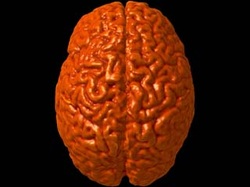 As an author, I’m known to observe people’s mannerisms, speak patterns, and social interactions. It helps me to write well-rounded characters and give me a heightened sense of empathy for others. I've learned you can't view the world in only Black and White. A few years ago only types of people that seem to perplex me, when I dare to interact with them long enough, were the narcissists, the psychopaths, and the sociopaths . I’m sorry to say, I can no longer say that. God, in his infinite wisdom has granted me some insight into these personalities that I’ll never forget. I look at the world of personalities in a VERY broad spectrum. Here's what I've learned about the group of people that once confused me. A big marker to spot a narcissist is their lack of empathy. Lacking empathy is a profound disturbance to the narcissist's thinking (cognition) and feeling (affectivity). They can pay attention only to stuff that has them in it. This is not merely a bad habit -- it's a cognitive deficiency. They also won't take other people's feelings into consideration and so they overlook the fact that other people will react with feeling when abused or exploited and that most people get really pissed off by being lied to or lied about.  Sociopaths and psychopaths share many traits, which is the main source of confusion for differentiating them in psychology and criminology. The shared traits are: a disregard for laws and social mores, a disregard for the rights of others, a failure to feel remorse or guilt, a tendency to display violent behavior and outbursts. Sociopaths and Psychopaths are often witty and articulate. They can be amusing and entertaining conversationalists, ready with a quick and clever comeback, and can tell unlikely but convincing stories that cast themselves in a good light. They prey ruthlessly on others using charm, deceit, violence or other methods that allow them to get with they want. They lack of a conscience or sense of guilt, have no empathy for others, are self-absorbed, pathological liars that constantly violate social norms, they disregard the law, have shallow emotions, and have a history of victimizing others. Some are so good at manipulation and mimicry that they have families and other long-term relationships without those around them ever suspecting their true nature. Psychopaths have a physiological defect that results in the underdevelopment of the part of the brain responsible for impulse control and emotions. It is their ability to effectively mimic empathy and emotional connection that make them particularly dangerous, unassuming and often highly dangerous.  In the eyes of others, sociopaths don’t appear to have a conscience. Sociopaths are the product of childhood traumas and abuse. They are capable of empathy or emotional connection with others but only to specific individuals, such as a family member or friend, and only in specific contexts. As an author, I’m a student of personalities. I want to know the combination of thoughts, emotions and behaviors that makes everyone unique. The way people view, understand and relate to the outside world, as well as how they see themselves helps me understand character development better. A person’s personality forms during their childhood and is shaped through two major factors:
There may be a link between an early lack of empathy — understanding the perspectives and problems of others, including other children — and later onset of one of these personality disorders. That’s why it’s so important to learn the history of a person and not just get swept up in what they present to the world.
0 Comments
Your comment will be posted after it is approved.
Leave a Reply. |
This blog covers novel completion, fellow authors and pop culture
Archives
May 2022
|

 RSS Feed
RSS Feed


